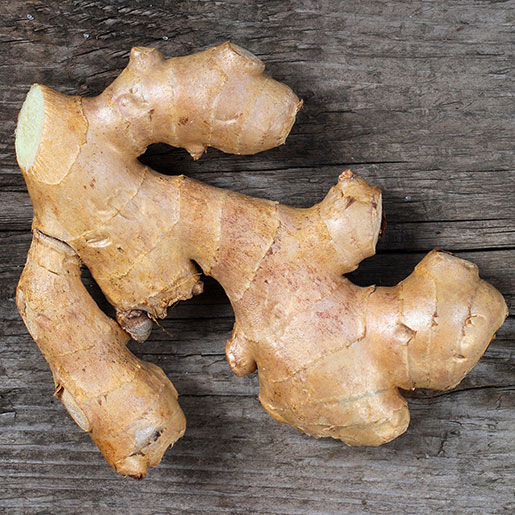Natural Remedies for Common Ailments: Healing Power of Nature
Welcome, fellow nature enthusiasts, to a journey through the lush green landscapes of natural remedies for common ailments. In a world where modern medicine often dominates the healthcare scene, it's easy to overlook the healing power that nature has to offer. But fear not, for today we embark on an adventure to uncover the age-old wisdom that has been passed down through generations—the healing properties of plants, herbs, and natural substances.
What Are Natural Remedies?
Natural remedies, also known as herbal remedies or alternative medicine, encompass a broad spectrum of treatments derived from plants, minerals, and other natural sources. These remedies have been used for centuries by various cultures around the world to address a wide range of health issues, from minor ailments to chronic conditions.
Key Aspects of Natural Remedies
1. Holistic Approach:
One of the fundamental principles of natural remedies is the belief in treating the whole person—mind, body, and spirit. Unlike conventional medicine, which often focuses solely on alleviating symptoms, natural remedies aim to restore balance and harmony within the body, addressing the root cause of the ailment.
2. Harnessing Nature's Bounty:
Nature is a treasure trove of healing substances, from medicinal herbs and plants to essential oils and minerals. Natural remedies leverage the therapeutic properties of these natural ingredients to promote health and well-being.
3. Individualized Treatment:
Natural remedies recognize that each person is unique, and what works for one individual may not necessarily work for another. Therefore, these treatments are often tailored to suit the specific needs and constitution of the individual, taking into account factors such as age, gender, and overall health.
4. Minimal Side Effects:
Unlike many pharmaceutical drugs, which often come with a long list of potential side effects, natural remedies are generally considered safer and gentler on the body. This is because they are derived from natural sources and often work in harmony with the body's own healing mechanisms.
Relevance of Natural Remedies Today
In an era dominated by synthetic drugs and fast-paced lifestyles, the relevance of natural remedies has never been greater. As more people seek alternatives to conventional medicine, there has been a resurgence of interest in traditional healing practices and natural therapies.
One of the main reasons for this shift is the growing awareness of the potential risks and side effects associated with pharmaceutical drugs. Many people are turning to natural remedies as a safer and more sustainable alternative, especially for managing chronic conditions such as pain, inflammation, and anxiety.
Moreover, the holistic approach of natural remedies resonates with an increasing number of individuals who are looking to address the underlying causes of their health issues rather than simply masking the symptoms. By treating the body as a whole and promoting balance and harmony, natural remedies offer a comprehensive approach to health and wellness.
Examples of Natural Remedies in Action
Now, let's delve into some real-life examples of how natural remedies have been used to effectively treat common ailments:
1. Echinacea for Immune Support:
Echinacea, a flowering plant native to North America, has long been prized for its immune-boosting properties. Studies have shown that echinacea extract can help reduce the severity and duration of colds and flu by stimulating the body's natural defences.
2. Lavender for Stress Relief:
Lavender essential oil is renowned for its calming and soothing effects on the mind and body. Whether inhaled through aromatherapy or applied topically, lavender oil can help alleviate stress, anxiety, and insomnia, promoting relaxation and better sleep.
3. Ginger for Digestive Health:
Ginger has been used for centuries in traditional medicine to aid digestion and relieve nausea. Whether consumed as a tea, added to meals, or taken in supplement form, ginger can help alleviate symptoms of indigestion, bloating, and motion sickness.
4. Turmeric for Inflammation:
Turmeric, a spice commonly used in Indian cuisine, contains a compound called curcumin, which has potent anti-inflammatory properties. Studies have shown that curcumin can help reduce inflammation in the body, making it beneficial for conditions such as arthritis, inflammatory bowel disease, and chronic pain.
Conclusion
As we conclude our exploration of natural remedies for common ailments, I hope you've gained a newfound appreciation for the healing power of nature. From herbal teas and essential oils to ancient healing practices such as acupuncture and Ayurveda, the world of natural remedies is vast and diverse, offering a wealth of options for those seeking alternatives to conventional medicine.
So, the next time you find yourself reaching for a bottle of pills to alleviate your symptoms, why not consider giving nature a chance to heal? Whether it's a soothing cup of chamomile tea for stress relief or a dab of peppermint oil for headaches, you might just be surprised by the profound effects of these simple yet powerful remedies.
Intrigued? I encourage you to continue exploring the fascinating world of natural remedies and discover the countless ways in which nature can support your health and well-being. After all, when it comes to healing, Mother Nature knows best.











Comments
Post a Comment